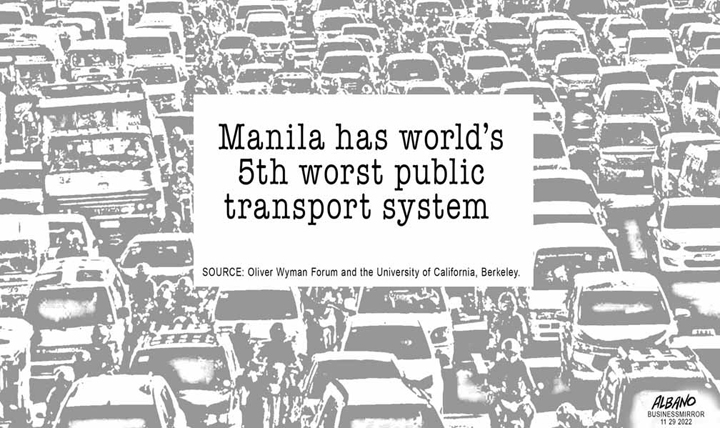The problem of poverty and inequality in the Philippines remains a big challenge. That’s because economic growth in recent years did not translate into poverty reduction, making the economic situation in the country one of the most unequal in the world. The World Bank said this inequality is expected to worsen due to the lingering effects of the pandemic.
In a recent report dubbed “Overcoming Poverty and Inequality in the Philippines: Past, Present, and Prospects for the Future,” the World Bank said the Philippines has made important gains in poverty reduction. Driven by high growth rates and the expansion of jobs outside agriculture, poverty fell by two-thirds—from 49.2 percent in 1985 to 16.7 percent in 2018. By 2018, the middle class had expanded to nearly 12 million people and the economically secure population had risen to 44 million.
Yet inequality remains high: The World Bank said the top one percent of earners together capture 17 percent of national income, with only 14 percent being shared by the bottom 50 percent.
“The Philippines aims to become a middle-class society free of poverty by 2040, but we know from global experience that no country has managed to make this transition while maintaining high levels of inequality,” said Ndiamé Diop, World Bank Country Director for Brunei, Malaysia, Philippines, and Thailand. “Inequality of opportunity and low mobility across generations wastes human potential and slow down innovation, which is crucial for building a competitive and prosperous economy that will in turn improve the well-being and quality of life of all Filipinos.”
Despite the strong recovery of growth and the labor market, the pandemic has partly reversed decades-long gains in reducing poverty and inequality in the Philippines. It halted economic growth momentum in 2020, and unemployment shot up in industries that require in-person work. In 2021, the national poverty rate rose to 18.1 percent despite government assistance, the report said.
“Recovery in the Philippines is uneven across the income distribution and the poorest that suffered the most from Covid have yet to fully recover their incomes. With food prices going up, many families coped by reducing their consumption, including eating less. These coping strategies can have serious consequences on the health and nutrition of children in these vulnerable households,” it added.
The study said that inequality starts even before birth and is perpetuated over the life cycle. It starts with maternal nutrition and health during pregnancy. Differences continue into childhood, where disparities in access to health care, proper nutrition, safe drinking water, sanitation, and quality education determine the extent to which a child’s human capital develops.
“Inequality shapes outcomes later in life, such as employment opportunities and income, which in turn influence how much support adult Filipinos are able to provide for their children to help maximize their potential,” saidNadia Belhaj Hassine Belghith, senior economist with the East Asia Poverty Global Practice covering Thailand and the Philippines who led the study.
The report said that policy priorities to reduce inequality in the country can be structured around three themes, including healing the pandemic’s scars and building resilience, setting the stage for a vibrant and inclusive recovery, and promoting greater equality of opportunity.
Healing the scars of the pandemic will require promoting greater vaccine booster uptake, overcoming the learning loss due to Covid-19, strengthening social assistance, unemployment insurance programs for the informal sector, and taming inflation. Setting the stage for vibrant recovery entails reskilling of workers, promoting entrepreneurship, increasing the participation of women in the labor force, and raising the productivity of agriculture.
Promoting greater equality of opportunity entails increasing access to quality health care, increasing equality of opportunity in education, and improving access to quality housing, among others.
The World Bank study said equality of opportunity needs to target the lagging regions and other people disadvantaged in accessing these because of the circumstances of their birth.
Bayanihan is the most valued culture of the Filipino people. It refers to the communal desire of Filipinos to show acts of kindness to those in need. It would do well for our leaders in government and the private sector to stay true to the values that make us who we are. Let’s promote greater economic equality in the country. As a wise man once said, economies do better when everyone has a chance to succeed.




























